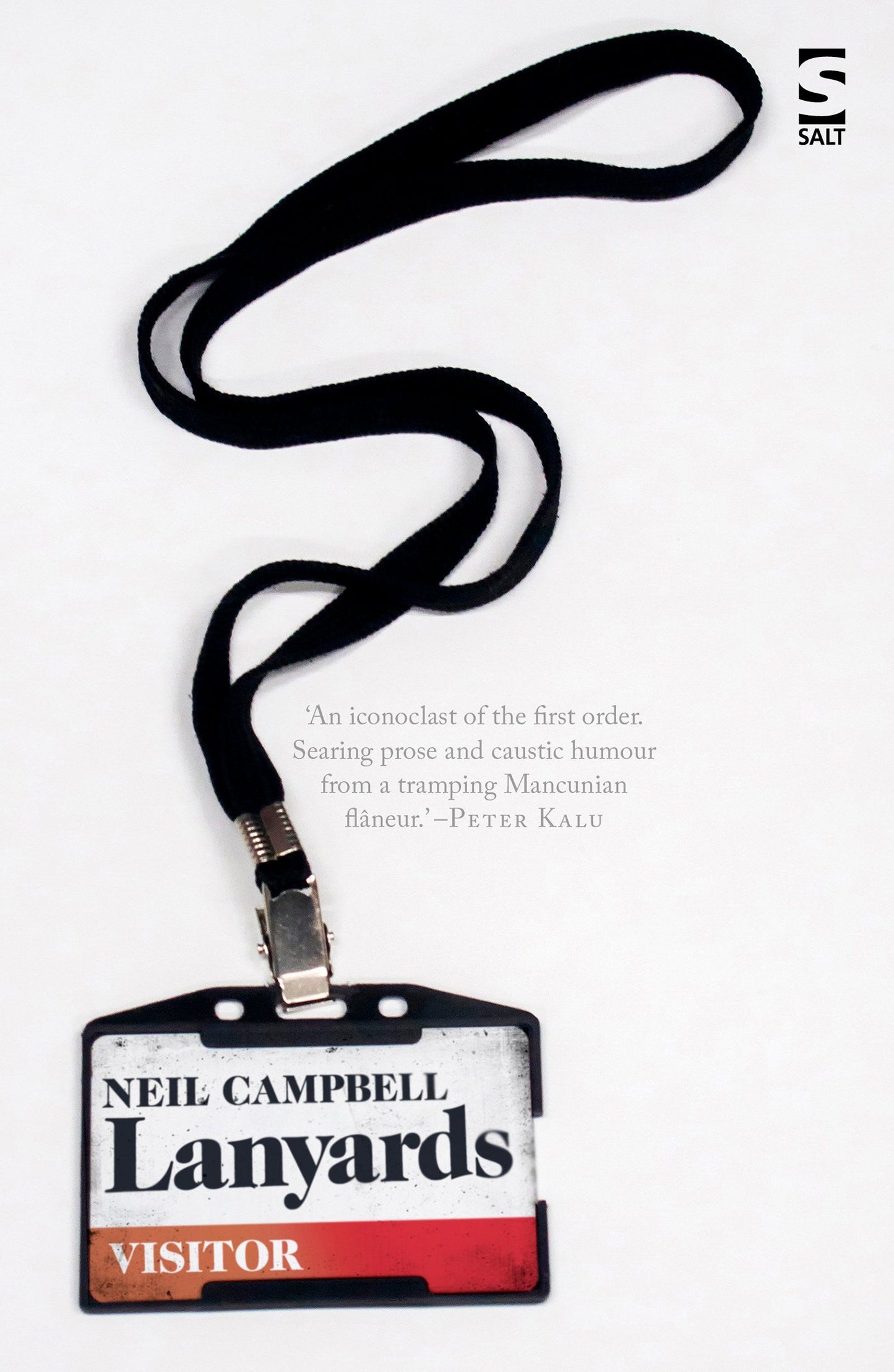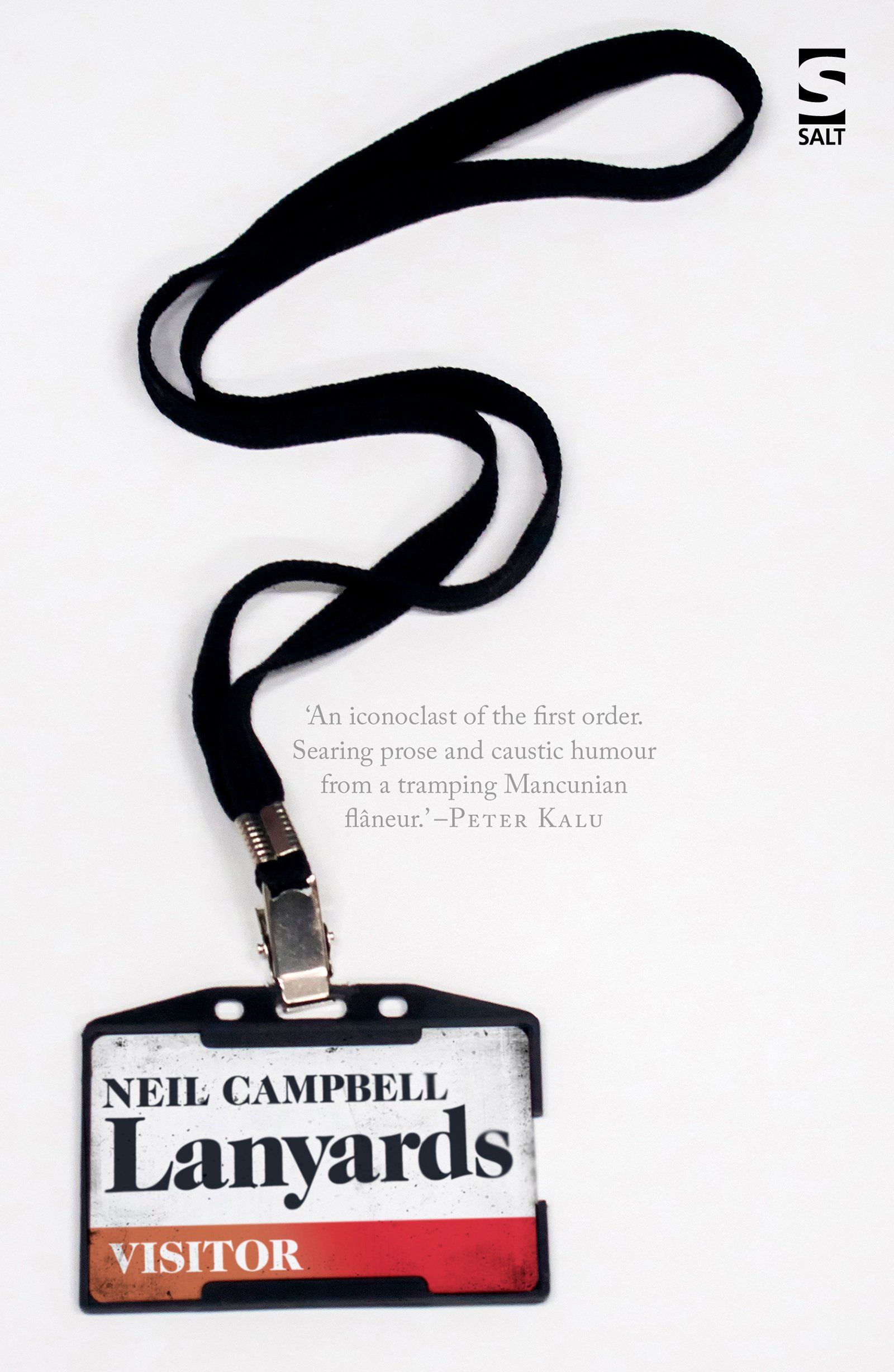Neil Campbell
Lanyards
Lanyards
ISBN:9781784631703
Couldn't load pickup availability
Synopsis
The third part of Neil Campbell’s Manchester Trilogy, in which our struggling young writer finds love with a girl called Cho. Where a love song to Manchester becomes a love song to Cho.
Lanyards explores how the jobs we wear around our necks dictate the ways we are identified.
Building on the previous novel in the trilogy, Zero Hours, our protagonist finds himself on universal credit, taking agency jobs, moving from learning support work in schools and colleges to call centre jobs and back again, via a failed attempt at getting a job as a driver on the Metrolink tram network.
Lanyards portrays the comic and poignant moments of working life. All the time reflecting back on the football career the narrator might have had were he not injured, his life as a writer, his experiences of being in a mixed race couple with the Hong Kong born Cho, the Manchester Arena bombing, the continuing success of his beloved Manchester City, the child sex abuse scandals in football, the disparities of wealth in contemporary Britain, and the death of a childhood friend that continues to haunt him.
Praise for this Book
‘Lanyards is an understated work of authenticity & truth about those ordinary lives trucking on, trying to matter. A story of quiet ambition & never truly giving up on what life once promised, this is a love song to Manchester past and present, & an ode to aspiring writers everywhere.’ —Lisa Blower
‘Lanyards is a warmer yet equally righteous Factotum for the 21st Century temp-contract, gig-economy UK.’ —Glen James Brown
‘Campbell's capacity to make the ordinary absolutely fascinating continues in this, the third novel in the Manchester Trilogy. Blackly humorous, witty and brimming with powerful observation, Lanyards is both touching and gritty, a must-read addition to the working-class genre.’ —Kerry Hadley-Pryce
Reviews of this Book
‘And yet, there is something within the tale that burrows into the mind of the reader – a spark of malcontent that demands attention. Within the ordinary life portrayed is a vibrancy, an insistence that good writing is worth pursuing. As readers we can be thankful that such attitudes persist amongst those whose voices should be heard.’ —Jackie Law, Neverimitate
‘Campbell writes with great compassion and humour about relationships, friends and family, people the narrator meets in the pub, students he supports, some work mates. It’s hard to explain why all this is so compelling but it just is. Other reviews I’ve read call his style ‘authentic’ and I can’t better that. You can recognise a real life here. It’s not showy. There’s just a little tub thumping – see above – but I felt that a kind of tenderness for others and a humorous view of life is being revealed all the time.’ —Altrincham Word Fest
Praise for Previous Work
‘An iconoclast of the first order. Searing prose and caustic humour from a tramping Mancunian flâneur.’ —Peter Kalu
‘Neil Campbell’s Zero Hours is a poetic, emotionally-charged reflection of what it means to live and work in the city today. Its Mancunian voice is so distinct it’s not like reading a novel at all but like having a conversation with modernity itself. Zero Hours is sharp, funny and moving – a wonderful evocation of Manchester life.’ —Lee Rourke
‘A 21st century Mancunian take on Post Office by Charles Bukowski. If you liked Post Office then you'll almost certainly like this.’ —Scott Pack
‘Campbell’s narrator is a young working-class man from Manchester. Throughout the novel he works a number of zero hours jobs, first at a mail-sorting depot, later at a number of libraries. There is nearly always something to dishearten our man, be it his duties, colleagues, managers, or just the constant uncertainty that comes with this kind of employment. Besides work, the narrator has a number of unsuccessful attempts at relationships, and sees the face of his city change, losing its character to gentrification. There’s a stop-start feel to reading the novel itself: as with zero hours work, the present moment is all, and even the immediate future uncertain.’ —David Hebblethwaite, David’s Book World
‘Campbell is a realist writer, and Zero Hours is probably even more true to life and purposefully undramatic than its predecessor. And this is no bad thing, because he is a poet with a knack for describing ordinary episodes that strike an expectedly emotional chord. He is also deeply concerned with place and the indelible imprint left on a person by the sites that represent lodestones of their past.’ —Ronnie McCluskey, Storgy
‘Zero Hours is the second volume of Neil Campbell’s Manchester trilogy. Honestly, if ever a novel deserved literary accolades and bouquets it’s this one. Zero Hours possesses more energy, grind and determination than a decade of Bookers. If there was any justice it should be jumping off the bookshelves.’ —Joe Phelan, Bookmunch
Product Details
Extent: 144pp
Format: Paperback
Publication Date: 15-Sep-19
Publication Status: Active
Series: Manchester Trilogy
Subject: Modern & contemporary fiction (post c 1945)
Trim Size: 198 x 129mm


